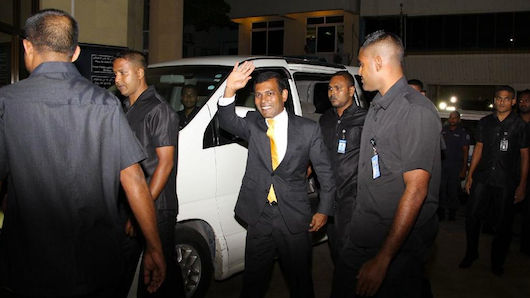Nasheed’s terrorism appeal begins at Supreme Court
The Supreme Court began reviewing an appeal filed by the state over a controversial 13-year terror sentence against former President Mohamed Nasheed that was criticised by a UN human rights panel as illegal and politically motivated.

03 Feb 2016, 09:00
The Supreme Court began reviewing an appeal filed by the state over a controversial 13-year terror sentence against former President Mohamed Nasheed that was criticised by a UN human rights panel as illegal and politically motivated.
The Prosecutor General’s Office and the opposition leader had filed separate appeals at the apex court. Today’s hearing only concerned the state’s appeal.
Public prosecutors are requesting the apex court’s opinion on whether Nasheed’s rights were upheld and due process was followed during the 19-day trial last year.
“This is not a normal appeal case. The UN Working Group on Arbitrary Detention and other parties have said that Nasheed’s trial violated due process and his rights. We want to ensure that Nasheed received due process and rights, and are asking the Supreme Court to review the case and make a judgement,” said public prosecutor Ahmed Hisham Wajeeh.
Become a member
Get full access to our archive and personalise your experience.
Already a member?
Discussion
No comments yet. Be the first to share your thoughts!
No comments yet. Be the first to join the conversation!
Join the Conversation
Sign in to share your thoughts under an alias and take part in the discussion. Independent journalism thrives on open, respectful debate — your voice matters.




